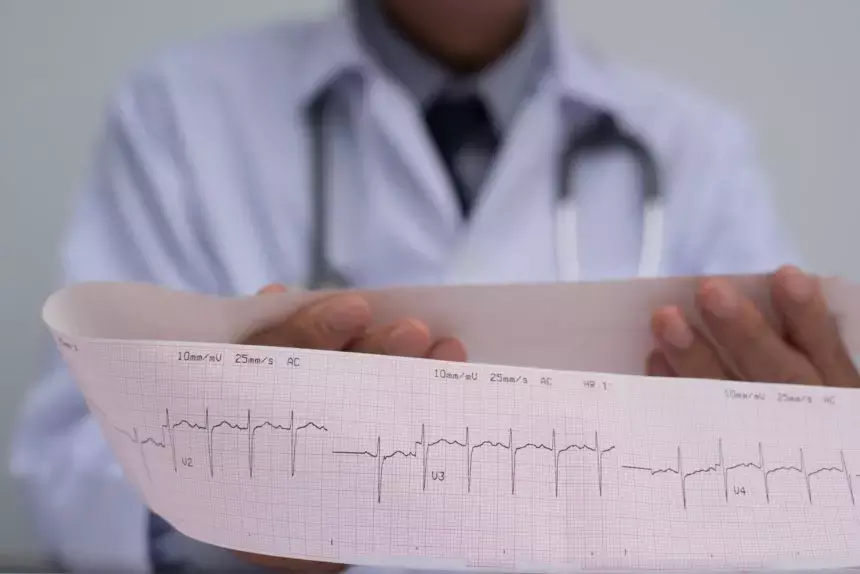- Home
- Medical news & Guidelines
- Anesthesiology
- Cardiology and CTVS
- Critical Care
- Dentistry
- Dermatology
- Diabetes and Endocrinology
- ENT
- Gastroenterology
- Medicine
- Nephrology
- Neurology
- Obstretics-Gynaecology
- Oncology
- Ophthalmology
- Orthopaedics
- Pediatrics-Neonatology
- Psychiatry
- Pulmonology
- Radiology
- Surgery
- Urology
- Laboratory Medicine
- Diet
- Nursing
- Paramedical
- Physiotherapy
- Health news
- Fact Check
- Bone Health Fact Check
- Brain Health Fact Check
- Cancer Related Fact Check
- Child Care Fact Check
- Dental and oral health fact check
- Diabetes and metabolic health fact check
- Diet and Nutrition Fact Check
- Eye and ENT Care Fact Check
- Fitness fact check
- Gut health fact check
- Heart health fact check
- Kidney health fact check
- Medical education fact check
- Men's health fact check
- Respiratory fact check
- Skin and hair care fact check
- Vaccine and Immunization fact check
- Women's health fact check
- AYUSH
- State News
- Andaman and Nicobar Islands
- Andhra Pradesh
- Arunachal Pradesh
- Assam
- Bihar
- Chandigarh
- Chattisgarh
- Dadra and Nagar Haveli
- Daman and Diu
- Delhi
- Goa
- Gujarat
- Haryana
- Himachal Pradesh
- Jammu & Kashmir
- Jharkhand
- Karnataka
- Kerala
- Ladakh
- Lakshadweep
- Madhya Pradesh
- Maharashtra
- Manipur
- Meghalaya
- Mizoram
- Nagaland
- Odisha
- Puducherry
- Punjab
- Rajasthan
- Sikkim
- Tamil Nadu
- Telangana
- Tripura
- Uttar Pradesh
- Uttrakhand
- West Bengal
- Medical Education
- Industry
Physical activity associated with lower risk of cardiac conduction disease

A recent study published in the European Heart Journal found that physical activity can lower the risk of cardiac conduction disease a serious condition that can lead to various health complications such as syncope, heart failure, and even death.
Currently, the only available treatment for this condition is pacemaker implantation, but there are no established strategies for its prevention. So, Emilie and team conducted a study using data from the Cardiovascular Health Study, which is a population-based cohort study of adults over 65 years of age. The study utilized annual 12-lead electrocardiograms obtained over a 10-year period to examine the relationships between various baseline characteristics, including lifestyle habits, and conduction disease.
The key highlights of this study were:
Out of the 5050 participants, there were a total of 257 cases of first-degree atrioventricular block, 99 cases of left anterior fascicular block, 9 cases of left posterior fascicular block, 193 cases of right bundle branch block, 76 cases of left bundle branch block, and 102 cases of intraventricular block at baseline.
After controlling for various factors, the study found that older age, male sex, larger body mass index, hypertension, and coronary heart disease were associated with a higher prevalence of conduction disease, while white race and more physical activity were associated with a lower prevalence.
Over a median follow-up of 7 years, 1036 participants developed incident conduction disease. The study found that older age, male sex, larger body mass index, and diabetes were each associated with incident conduction disease.
In terms of lifestyle habits, more physical activity was found to be associated with a reduced risk of developing conduction disease. The study found that while some difficult-to-control comorbidities were associated with conduction disease, physical activity, a readily modifiable lifestyle factor, was found to be associated with a lower risk of developing conduction disease.
Source:
Frimodt-Møller, E. K., Soliman, E. Z., Kizer, J. R., Vittinghoff, E., Psaty, B. M., Biering-Sørensen, T., Gottdiener, J. S., & Marcus, G. M. (2023). Lifestyle habits associated with cardiac conduction disease. In European Heart Journal. Oxford University Press (OUP). https://doi.org/10.1093/eurheartj/ehac799
Neuroscience Masters graduate
Jacinthlyn Sylvia, a Neuroscience Master's graduate from Chennai has worked extensively in deciphering the neurobiology of cognition and motor control in aging. She also has spread-out exposure to Neurosurgery from her Bachelor’s. She is currently involved in active Neuro-Oncology research. She is an upcoming neuroscientist with a fiery passion for writing. Her news cover at Medical Dialogues feature recent discoveries and updates from the healthcare and biomedical research fields. She can be reached at editorial@medicaldialogues.in
Dr Kamal Kant Kohli-MBBS, DTCD- a chest specialist with more than 30 years of practice and a flair for writing clinical articles, Dr Kamal Kant Kohli joined Medical Dialogues as a Chief Editor of Medical News. Besides writing articles, as an editor, he proofreads and verifies all the medical content published on Medical Dialogues including those coming from journals, studies,medical conferences,guidelines etc. Email: drkohli@medicaldialogues.in. Contact no. 011-43720751


